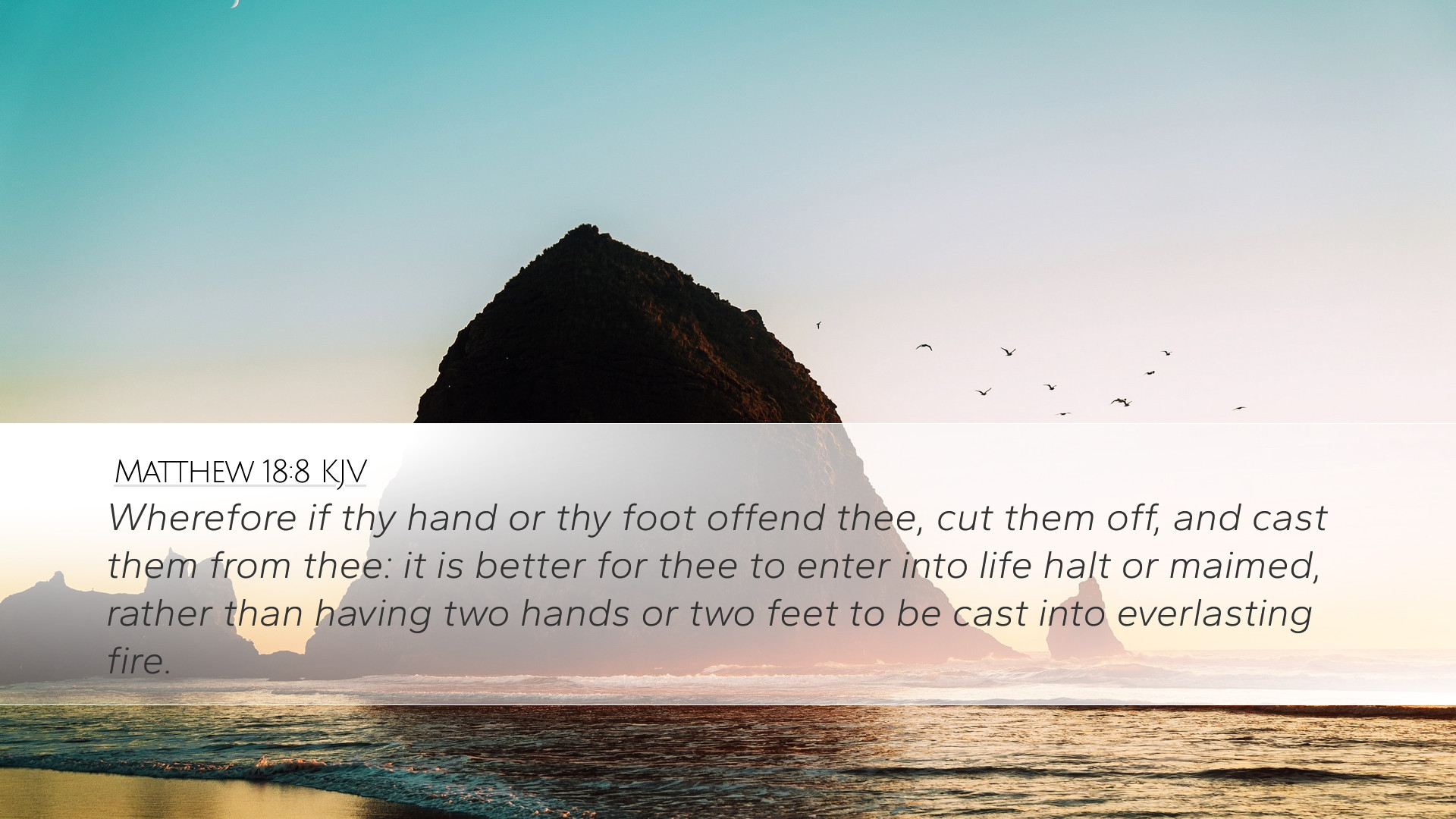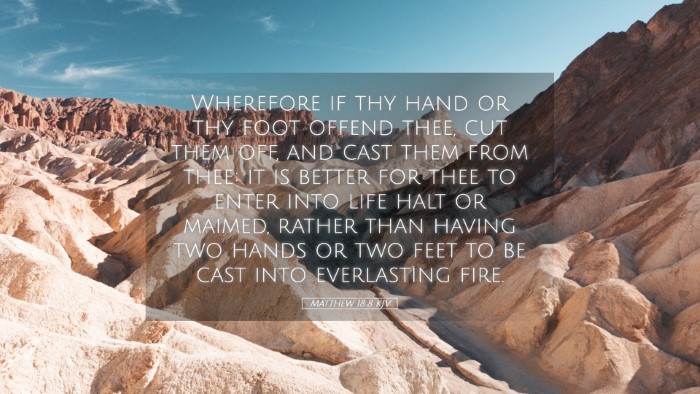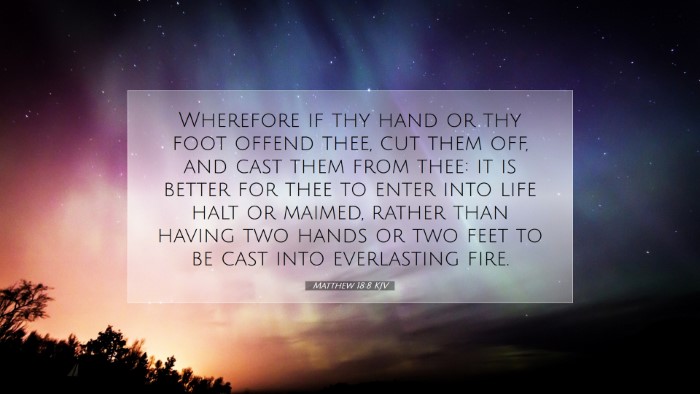Commentary on Matthew 18:8
Matthew 18:8 states: "Wherefore if thy hand or thy foot offend thee, cut them off, and cast them from thee: it is better for thee to enter into life halt or maimed, rather than having two hands or two feet to be cast into everlasting fire."
Introduction
This verse conveys a stark metaphor employed by Jesus to illustrate the seriousness of sin and the drastic measures one must consider to avoid it. The imagery of cutting off a hand or foot is not to be taken literally but signifies the need for self-discipline and the elimination of anything that leads one away from a righteous path.
Theological Context
This passage comes shortly after Jesus teaches about humility and the importance of removing causes of sin within oneself. Matthew Henry comments that the context of this verse is embedded in the larger discourse about leading others into sin and the importance of personal integrity in spiritual matters.
Analysis of Key Terms
-
Offend:
To "offend" here indicates causing one to stumble or fall into sin. This speaks not only to overt sinful actions but also to the heart's inclination towards idolatry and distraction from God's will.
-
Cut Off:
This phrase metaphorically suggests the need for radical action to avoid spiritual ruin. Albert Barnes emphasizes that it may require extreme sacrifices in the lives of believers to avoid sin.
-
Everlasting Fire:
The reference to everlasting fire denotes the ultimate consequence of unrepentant sin: eternal separation from God. Adam Clarke notes that this serves as a solemn warning to instill a healthy fear of judgment among believers.
Insights from Commentaries
Matthew Henry
Henry asserts that this passage emphasizes the need for personal sacrifice in the pursuit of holiness. He explains the significance of overcoming sinful habits that entrap individuals, arguing that the loss of physical limbs is inconsequential compared to the eternal consequences of sin.
Albert Barnes
Barnes’ commentary delves into the notion of self-discipline. He posits that every believer should assess and eliminate from their life any potential sources of sin, which can be personal relationships, sinful practices, or harmful habits. The illustration of the hand and foot reflects the profound truth that what we actively engage with can lead us away from Christ.
Adam Clarke
Clarke brings attention to the implication of living in a sin-filled world. He notes that the emphasis on 'casting away' implies an active role in one's spiritual welfare. He encourages believers to remain vigilant, understanding that even seemingly minor sins can lead to significant spiritual downfall.
Application for Believers
For pastors, students, and theologians, this verse serves as a poignant reminder of the cost of discipleship. Implementing teachings like this requires introspection and often a collective response from the church community. It challenges the status quo of comfortable Christianity, urging believers to examine their lives critically and make necessary adjustments.
Conclusion
The message of Matthew 18:8 is a clarion call to rigorous self-examination and commitment to holiness. By understanding the metaphorical language that Jesus uses, believers can appreciate the gravity of sin and the radical steps required to live in a manner that glorifies God. In light of historical commentaries, it becomes evident that the fundamental aim is to lead a life that is pleasing to God, transcending beyond earthly affiliations and securing eternal salvation.


